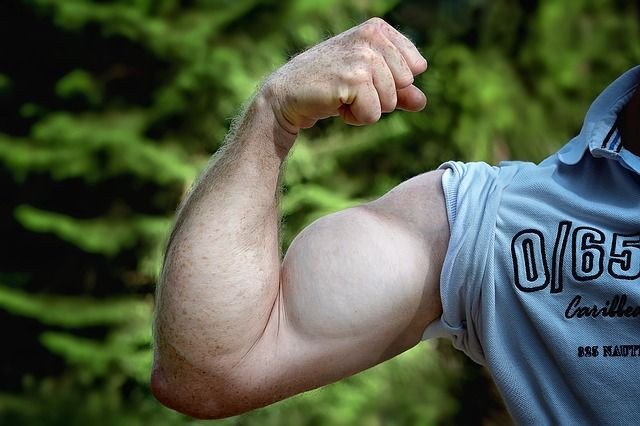Is Bodybuilding Healthy? How The Sport Affects Your Heart, Bones, Muscle, Lungs

Body building is very much a visual sport; a bodybuilder's impressive physique is hard to ignore and recognizable world-over. Although these athletes spend an insane amount of time in the gym and perfecting their diets, how does this sport affect their overall health?
The intensive weight lifting and strength training that bodybuilders undergo changes their bodies, making them stronger and leaner. Building muscle mass is not only healthy in the short term, but can also have long-lasting health benefits. For example, according to LiveStrong, with age comes a loss of muscle mass and strength attributed to sarcopenia, the natural and normal decline in muscle. Building up muscle mass earlier in life can help to slow down this natural muscle decline, keeping your stronger for longer. In the long term, it can help you to live independently and maintain a better quality of life in your later years, though it does come with some potential downsides.
Among its benefits, bodybuilding can help contribute to better bone health. According to LiveStrong, the resistance training associated with body building puts strain on your bones, and forces them to adapt and become stronger and more dense. This can help prevent the onset of osteoporosis and even make you less susceptible to breaks and fractures.
Unfortunately, while bodybuilding can benefit muscle and bone health, it can be detrimental to your overall heart health. For example, How Stuff Works reported that intense lifting, such as lifting more than half of your overall body weight, can put you at risk for tearing your aorta —an often fatal heart injury. However, this risk is only for those who weight lift to the extreme. In moderate amounts, strength training is also highly beneficial for your heart and lung health, and can improve the function of both these vital organs.
Along with weightlifting, bodybuilding is often associated with strict dieting to help get as lean and big as possible. Unfortunately, according to Healthline, many bodybuilders tend to restrict caloric intake and upload on protein while leaving out other important vitamins and nutrients. However, unhealthy dieting does not have to be a part of your bodybuilding routine, and maintaining a healthy diet can help you to reach your ultimate fitness goals.
Some bodybuilders may even develop a distorted view of their bodies, called muscle dysmorphia, in their effort to become bigger and leaner. According to the Body Dysmorphic Disorder Foundation, individuals with muscle dysmorphia are preoccupied with not being sufficiently muscular or lean and as a result will develop unhealthy behaviors such as spending excessive time in the gym, adhering to unhealthy diet plans, and compulsively comparing and checking out their physique.
Read More:
Sarcopenia Receives Diagnostic Update Proposal In Hopes Of Finding Common Ground For Treatment: Read Here
Using Bodybuilding Supplements May Increase Risk Of Testicular Cancer: Read Here



























